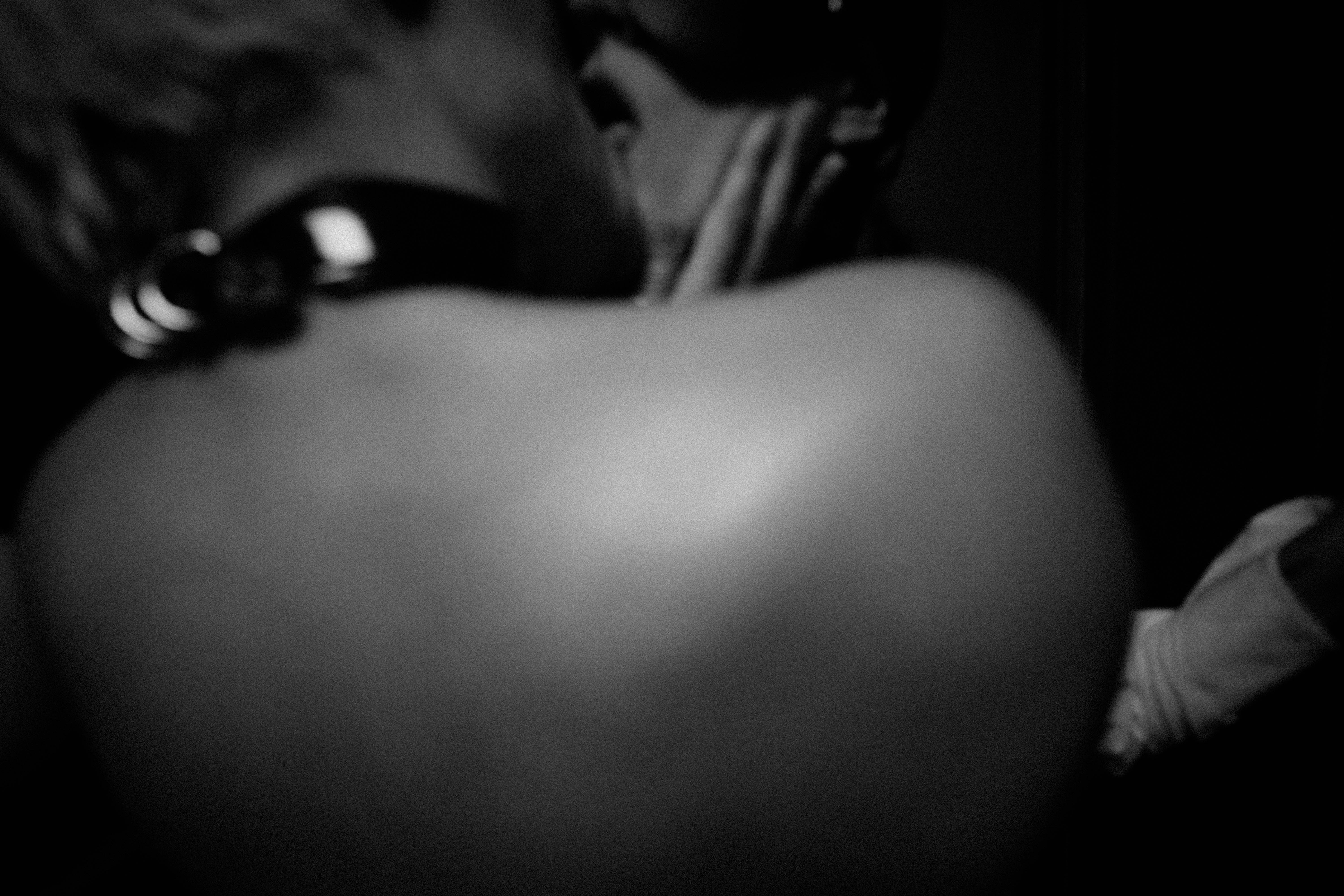On a classic midwinter deep-freeze evening on the 21st January 2015, I first saw Savages perform at Bowery Ballroom in New York. I knew the music. I had read about them. But I didn’t feel the real energy and attitude of Jehnny Beth until that night. Skip forward four years and I am introduced to Jehnny by her manager, John Silva, just as I leave Faber and embark on the White Rabbit adventure.
Jehnny shows me three stories, I think, and a clutch of highly erotic photographs by her collaborator, Johnny Hostile. The C.A.L.M. Manifesto is written. The texts and photographs that will constitute the two volumes White Rabbit Books publish tomorrow start to take shape over the summer of 2019.
As an artist Jehnny Beth manages the unmanageable: she is at once provocative, compassionate, remote and intimate. The erotic fiction and the photography in C.A.L.M. allow us a glimpse of a life that is led with freedom, integrity and imaginative licence.
We have been separated from those we love and from physicality these past few months. C.A.L.M. arrives at a moment when the bonds of these relationships can start to gently reform and as such perhaps it is a healing text for this moment. I spoke to Jehnny and Johnny about the book in advance of the launch we will host at The Social tomorrow. Here is the transcript.
Lee Brackstone
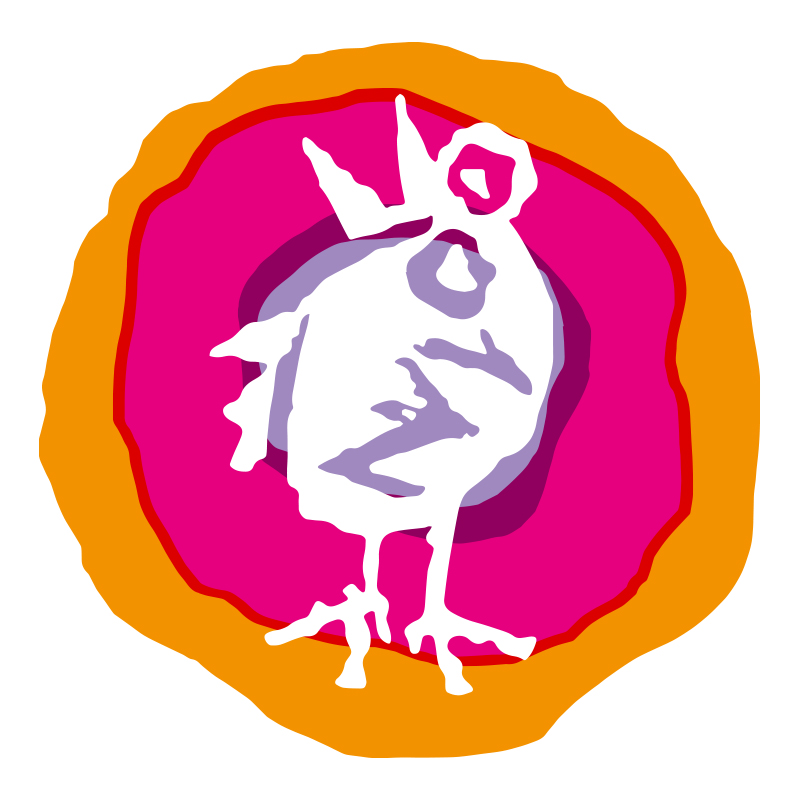
C.A.L.M.
Crimes Against Love Manifesto
because a life lived in fear is equal to no life at all
we won’t gamble our existence on the fickle world of ‘what will they think’
and wake up one day thinking we have wasted the wonderful fact of our own existence
we won’t worry about fear, jealousy, solitude
the system that weighs duty against desire and pronounces desire the loser
they’re all by-products of love
unavoidable obstacles implanted in our core
by generations of parents, grandparents and all the people
who fall in love and yet are unhappy
and who blaming themselves for having lived too timidly
will attack us for having dared
we live on the other side of their wall
we break through their rules of loving
searching for our own alternative ways
no matter the morals agreed collectively
the prudishness and punishments
the accepted forms of loving, family, monogamy
and far too much imprisonment
in secret, in the safety of our apartments, inside our heads
we will create a space where they don’t belong
a place where we are free
our neighbours won’t know about it
our families won’t know about it
and those who think they can be part of it
but haven’t made the sacrifice
are not welcome
there, we will practise our secret rituals
with those who have defeated their fears
days and nights, out of sight and silently
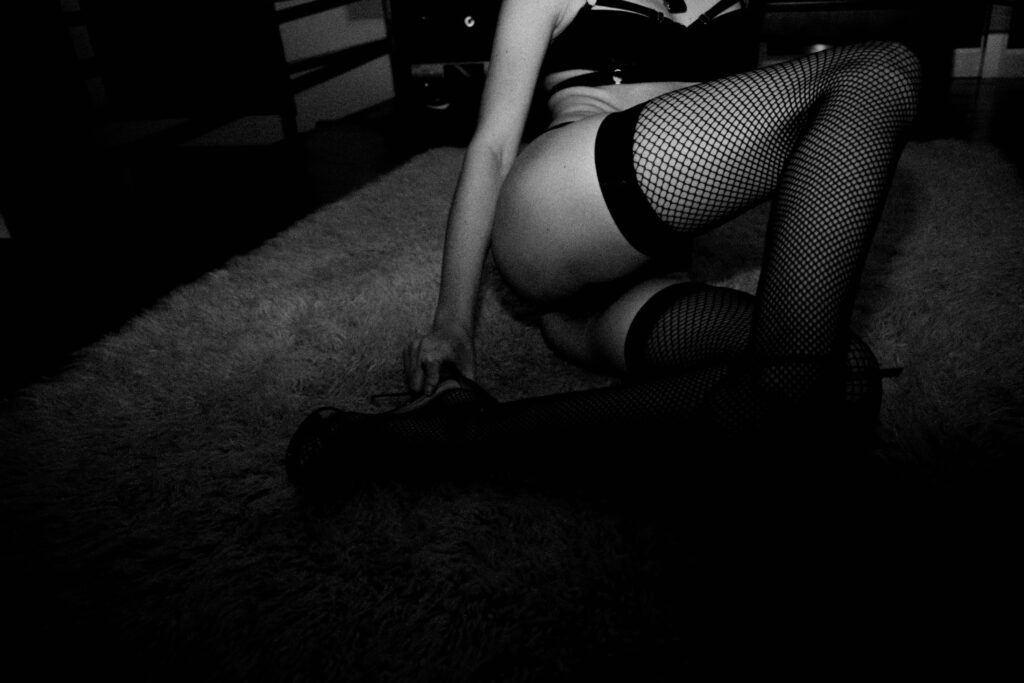
White Rabbit: This is one in the line of many collaborations between you two. Can you tell us a little about your history and how you bonded over various projects in the art and music space?
Johnny: It started with the music. we used it as an excuse to spend more time together. We were both addicted to the intellectual aspect of our relationship. Music was the first tool to build our own world. A world where we can be proactive, never bored, discuss, create without judgment or distractions. The beginning of the relationship was dense and still is these days. I guess we are doing it right.
Jehnny: I think we were both very honest about our understanding of relationships, how love is not enough to make it last. Whether we act as the muse or its opposite, each of us find in the other the courage to expose ourselves and be the artists we always wanted to be.
WR: Which came first the photography or the stories?
Jehnny: In 2017 Johnny started photographing friends at home, also during our travels around the world, which led to meetings with new and interesting people. I responded to his creativity by writing prose. All of Johnny’s photos are anonymous. Anonymity is important in a society obsessed with the selfie; it creates a place of trust and respect where people can talk without fear of judgment. Johnny empowered me by giving me the reality of that life which created C.A.L.M. and helped me to maintain it over the years.
WR: How did the ‘creative process’ work with the models? Were they aware you would be making art in the form of a book when the original photographs were taken?
Johnny: No, they were not aware and neither was I. I started as a pure amateur and I was experimenting with photography as I was doing it. Like everything I do, I have no commercial goal whatsoever and it took a lot of convincing before I said yes to the book. Primarily because it didn’t feel respectful towards the models, you know, selling a book, and I’m super protective about their well-being and intimacy. But when I started to talk to them about it they were so excited by the idea!! Maybe more than me. They are all wonderful precious humans. They gave me something I’ll never forget and my ultimate goal with this project is to not disappoint them. if they are happy, I am happy.
WR: What is it about the freedom to express yourself sexually that you think is particularly liberating, not just for yourself, but generally for society?
Johnny: Women should have that freedom, no fucking questions asked. And we are still not there yet. There is still a debate when a woman wants something as simple as the freedom to sleep or not to sleep with whoever she wants. To show or not show her body etc… Each time a woman says or does something it has to be controlled, and questioned, and I am sick of it as a man. I’m humbled by their presence, by their stories, by their personality, by their emotions. They are peculiar yes and that’s what I love – you can learn new things with someone different. The world would be a much better place if men shut up about sex and listened to women more. My world is surely a good place, I recommend it.
Jehnny: My personal attitude towards sex is naturally represented throughout the book inside of each character’s narrative, but the characters talking in these stories exist outside of our known reality; they belong to the deep unmeasurable space of the imagination, perhaps the truest place for sexual expression. Today more than ever, humanity needs to keep projecting sexuality into the safe guarded space of their imagination. Maybe we are contributing with C.A.L.M. to activate such a fun pursuit and arouse more men and women to more exploration!
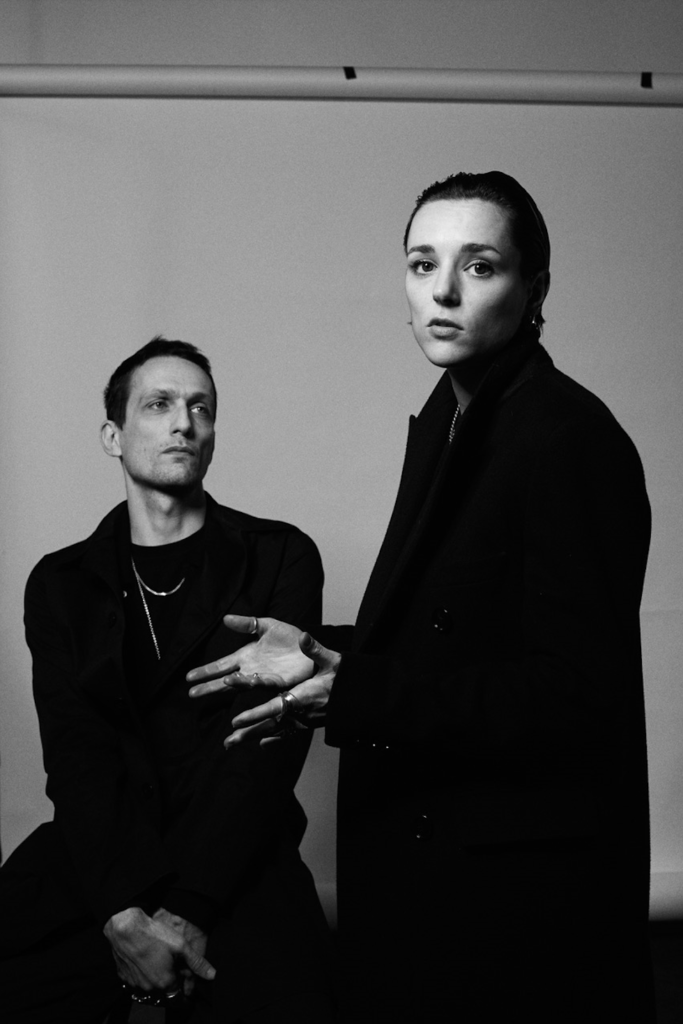
WR: Six of the stories are Monologues, six are in the form of Dialogues. What attracted you to these ‘dramatic’ forms?
Jehnny: It always starts with the form. I initially started writing the dialogues. I wanted my characters to talk but I didn’t want to write in a ‘conversational’ style. My first inspiration was the structures and styles of Greek plays: zero didascalies, action described in the dialogues… My desire was to erase as much as possible any sociological clues, names, locations, dates… I wanted the reader to be left only with the character’s desires and fears. As I started writing about fantasies I discovered there was no artistic interest in desperately mirroring the events of real life. ‘Sticking to the facts’ was simply an absurd and impossible path. That’s when I started introducing some magical realism into the texts and the monologues appeared.
WR: The stories have the quality of myth about them. They have a relentless and morally deregulated ‘Ovidian’ register to them. Are you attracted to classical narratives and art forms?
Jehnny: Yes and this is why I chose to write about sexuality. It’s a choice that begins with the nature of sex itself: not concerned with the trivia of the day, sex deals with the timeless, the universal values of human existence. When Ulysses is tied up to the mast of a boat to resist the sirens in ‘Odyssey’, we are faced with a philosophical dilemma, a question that not only concerns the individual but the whole of humanity. It was that sort of place I wanted for my characters.
WR: The two books are many things – art and entertainment for sure – but do you also intend for them to be helpful?
Jehnny: It is hard to judge the impact on others, and even harder to control it. The book and the photos come from a positive place so I would be very surprised if they didn’t have a positive impact on anyone holding a copy in their hands!
Johnny: I don’t have that sort of expectation on my part. It comes from a very private place. It’s a never-ending experimentation and I want to keep it that way. If it’s helpful or inspirational for others I guess that is a very good thing. I am inspired by others for sure, but I tend to not pay attention too much and try to keep it focused.
WR: The past four months have perhaps been the most ‘sexless’ in history. Does this worry you? How do we recover our sexual selves after isolation and the fear that brings?
Johnny: Like everything else, you recover with energy, positivity about yourself and efforts. A lot of it. Put yourself back in the game because no one else is gonna do it for you. What choice do you have? Depression? No thanks. Just keep fighting the good fight. If those months scared the shit out of you then good, fear isn’t the end of something, it’s the beginning, a realisation. It tells you what you have to do, it’s the first step to change something about yourself, to build something you never thought of, to be stronger, then next time you’ll be more prepared.
Jehnny: There are no secrets you just have to trust that things will eventually go back to normal, take it at your own speed but also… don’t sacrifice your life because of fear. Like one of my characters in C.AL.M. says: ‘I believe that an act taken in spite of fear is a hundred times more personal. You get more pleasure out of it, you squeeze more life out of life, because you have done an act so violent, so irrevocably against nature, that it is impossible to go back on it. That’s when you start living.’
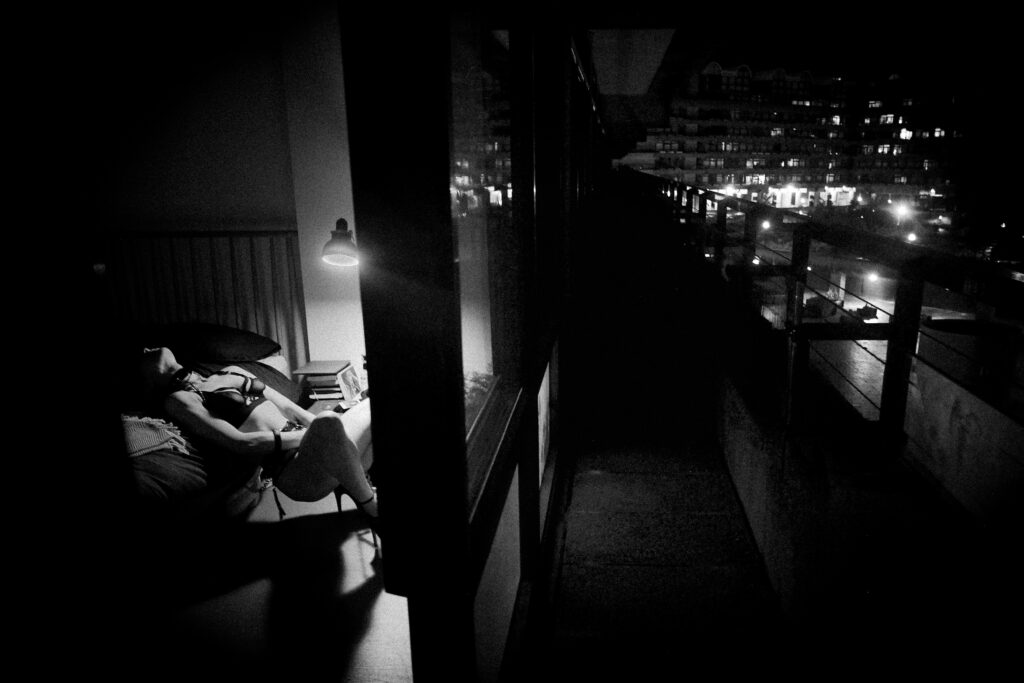
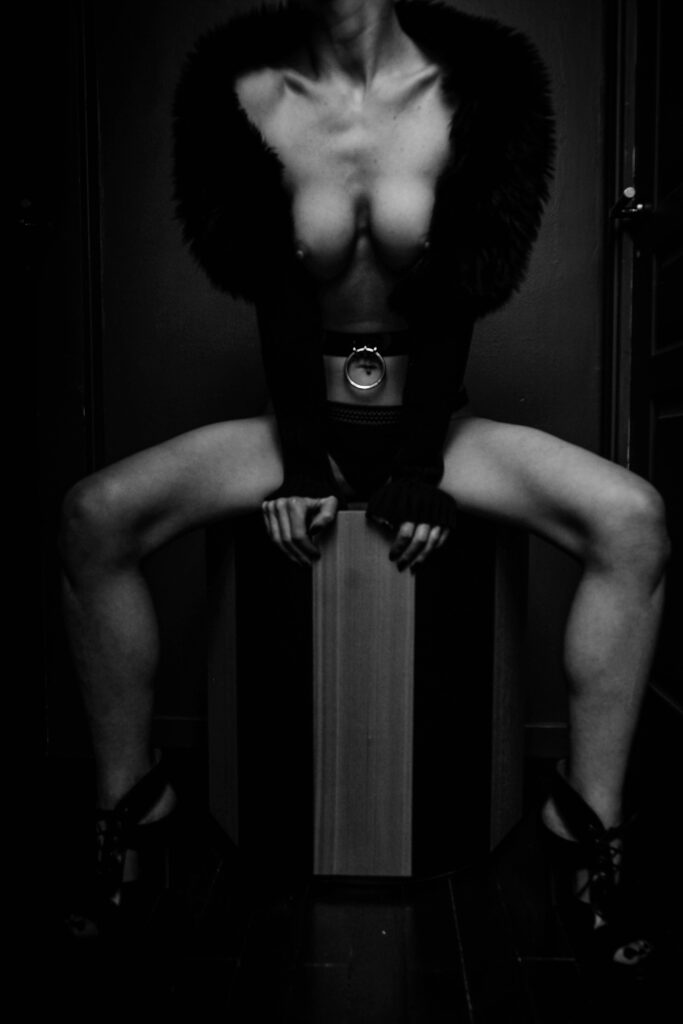
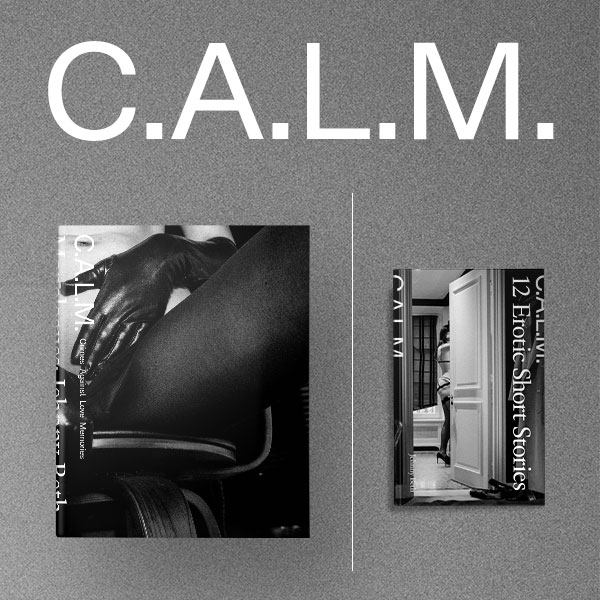
C.A.L.M. – Available as a collection of stories in paperback, and a limited-edition photographic art book which interweaves Jehnny Beth’s stories with photography by Johnny Hostile

